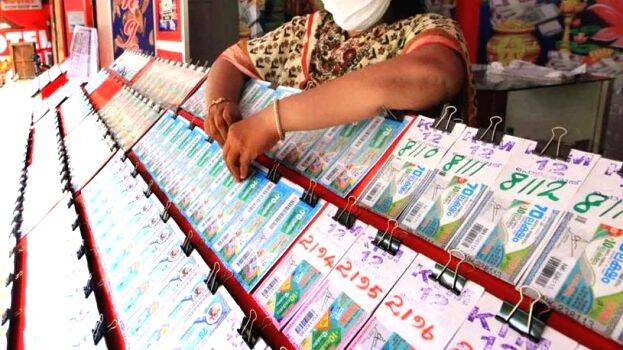

Kerala Lottery provides livelihoods for lakhs of people and funds many social welfare programs. However, reports suggest that the central government is planning to increase the GST on lottery tickets from 28% to 40%. This move can only be seen as an attempt to tap into Kerala's lottery revenue at a time when the state is already facing a financial crunch caused by reduced borrowing limits and lower tax allocations. When GST was introduced, the tax on lottery was 12%. In 2020, it was raised to 28%, which led ticket prices to increase from Rs 30 to Rs 40 and later to Rs 50. This affected ticket sales. Every year, the state generates lottery sales worth around Rs 14,000 crore, of which approximately Rs 3,000 crore is paid as tax and about Rs 450 crore remains as profit. The proceeds fund medical and educational assistance, maternity support, help for persons with disabilities, and other welfare schemes. If lottery revenue falls, these programs may be affected.
The decision to reduce and revise GST rates was taken in view of rising inflation in the country. However, for certain sectors, it was decided to impose higher GST, and lottery falls under this category. The central government has classified Kerala Lottery along with online gaming and gambling. In protest, the Chief Minister and Finance Minister have written to the Centre, pointing out that lottery is not gambling and that its revenue is used entirely for welfare activities.
While GST reductions are generally beneficial for the public, the resulting loss of revenue for states is a concern. A recent meeting in New Delhi with finance ministers from eight states, including Kerala, estimated that state revenue could drop by 20% if GST rates are reduced without compensation from the Centre. Opposition-led states such as Kerala, Karnataka, Tamil Nadu, Telangana, Punjab, Himachal Pradesh, Jharkhand, and West Bengal have requested that the central government compensate for this loss. This can be seen as a completely reasonable demand. The reform will result in a reduction of around Rs 8,000 crore in Kerala's revenue.
Kerala had been receiving GST compensation until 2022. In the last two years, however, the state received only Rs 32,500 crore instead of the Rs 54,500 crore it was entitled to. The Centre needs to adopt a more generous approach toward Kerala. While the Union government has taken supportive positions on matters such as national highway development, it must also show greater flexibility regarding the state’s borrowing limits and rightful revenue share. Kerala has repeatedly raised this issue and held discussions with the Union Finance Minister. State Finance Minister K.N. Balagopal has been actively following up, and what is required here is not a political stance but a fair and beneficial approach for Kerala.
With Onam just days away, welfare pensions, bonuses, and salaries are being distributed smoothly despite financial strain. There have been no major disputes or complaints. This is a reflection of sound financial management, and both Finance Minister K.N. Balagopal and the state government deserve appreciation for handling the situation effectively.